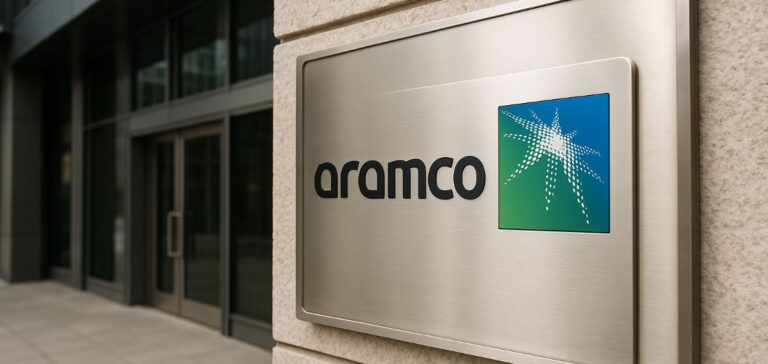Saudi Arabian Oil Company (Aramco) reported a 4.6% decline in net profit for the first quarter of 2025, totalling SAR97.54bn ($26.01bn), compared to SAR102.27bn ($27.27bn) in the same period of 2024. The drop comes amid lower revenue from sales and rising operational expenses.
Cost pressure and global trade tensions
According to a statement published by the Saudi stock exchange and relayed by Agence France-Presse, the decrease in profits was due to “lower revenues and other sales-related income, as well as higher operating expenses.” Aramco remains one of the financial cornerstones of the Kingdom’s economy, where the state owns 81.5% of the company’s capital.
Aramco President and Chief Executive Officer Amin H. Nasser stated that “global trade dynamics affected energy markets in the first quarter of 2025, with economic uncertainty impacting oil prices.” Oil prices have come under significant pressure, particularly due to concerns surrounding US trade policies and their potential impact on global demand.
A strategic setback for Vision 2030
Aramco’s changing financial performance comes as Saudi Arabia increases its investments under the Vision 2030 programme, launched by Crown Prince Mohammed bin Salman. This plan aims to diversify the Kingdom’s economy to reduce its reliance on oil, with projects such as the $500bn NEOM megacity, a bid to host the 2034 World Cup, and the construction of a new international airport in Riyadh.
In 2022, Aramco reported record profits following the surge in oil prices driven by Russia’s invasion of Ukraine, allowing Saudi Arabia to post a budget surplus for the first time in nearly a decade. However, the downward trend in oil prices since 2023 has reversed that trajectory.
Budget forecasts and structural dependence
In September, the Saudi Ministry of Finance announced a projected budget deficit of 2.3% of gross domestic product in 2025, expecting the deficit to continue until 2027. In this context, the decline in Aramco’s revenues raises significant budgetary challenges for financing the country’s development strategy.
“The impact of global economic volatility on our results illustrates the importance of our long-term approach,” said Amin H. Nasser, as quoted by BGNES on May 11.






















